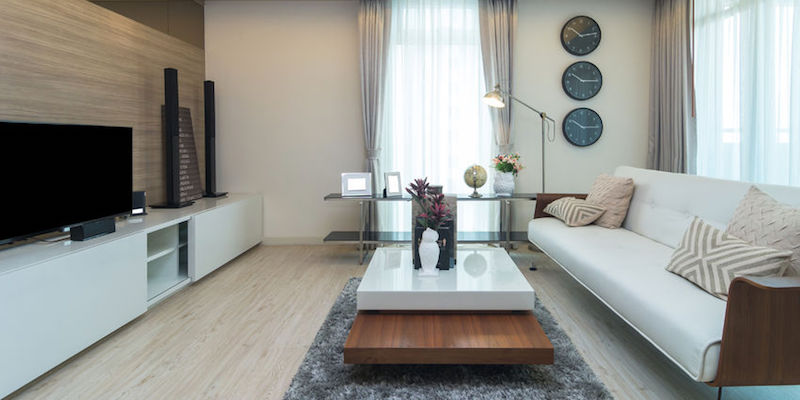Depending on how modest or posh your next condominium is, you could face paying monthly fees of $400 or four figures. It’s best to speak with an experienced real estate agent and consider all aspects of purchasing a French Quarter condo before pulling the trigger.
Fees Following Purchases, Limited Rights to Choose
A perfect-sized, economically priced home in a great part of town, a swimming pool and no lawn to mow? If the idea of condominium life appeals to you, then the choice to buy one instead of a house is the clear choice, right? Not so simple.
There’s a lot to consider before you close on a condo: Will having a condo let me avoid the expenses and troubles house owners face? Will my home be a good investment?
Despite a small lapse in 2012, New Orleans condominium owners have been fortunate to see substantial increases in unit prices this decade. From January 2010 to October 2017 the median price for a New Orleans condo rose from $230,900 to $341,400, a 47.9 percent increase. Surging prices can lead to precipitous falls, however.
A spot check of New Orleans condominiums found a full spectrum of listings from modest-but-nice $100,000 dwellings to opulent penthouses. One three-bedroom, three-bathroom unit with 2,390 square feet of space across from Jackson Square carries a $1.67 million asking price. For $2.9 million you can have the keys to a riverfront condo near Canal Street, with three bedrooms, five bathrooms and 3,784 square feet of space.
Know About Condo Expenses
If you’ve investigated enough and want to still to buy, consider a few more things, according to personal finance adviser Suze Orman. Costs, mainly the maintenances fees paid to your condo association, go beyond the purchase price. The pool doesn’t get cleaned for free. Be sure you can afford it in addition to your mortgage, property taxes, and condo insurance.
Some condos may require only $300 to $400 per month. The $1.67 million and $2.9 million New Orleans condos above carry fees of $1,539 and $3,316 per month.
And make sure that your building’s fees haven’t grown faster than the annual inflation rate, usually 3 percent. Make sure that nearly all (Orman says 97 percent) of the development’s owners are up-to-date with their fees. If they start defaulting, then you and the other owners will have to make up for the shortfall. Be sure that 10 percent or more of the association’s budget goes into reserve for when unforeseen problems occur. Be sure the building’s roof and mechanical systems are new-ish, perhaps less than 10 years old. If your lovely new abode needs a new roof or a plumbing overhaul, you could get hit with a special assessment charge.
The best piece of advice is to talk to a few of your prospective neighbors who can give you the real view of the problems and pleasures of living there.
A Safer Investment? Time Will Tell
Even though a condo might cost less than a house, it doesn’t necessarily equate to lower risk.
Condos were hit hardest during the past decade’s housing crash. From 2007 through 2010, the median price of condos across the United States dropped 24 percent as compared with 22 percent for single-family homes, Orman wrote, citing the National Association of Realtors. Those condos were built during the low-interest-rate buying frenzy that followed 9/11 and were purchased mainly as investments.
Since the crash, though, the Federal Housing Administration enacted safeguards to deflate condo speculation. For instance, the agency will insure loans only where at least half of the development is occupied by its owners. You can see if your prospective condo is covered at https://entp.hud.gov/idapp/html/condlook.cfm. Orman advises that you look for condos that have the highest owner-occupancy. You should also ask your New Orleans real estate agent for data on how the values of local condos have fared in comparison with those of single-family homes.
Your Condo, Your Rules?
Not quite. Condominium owners can have far fewer choices about their abodes than house owners do. While a homeowners association in a planned development may need to approve additions, alterations, and improvements to your house, a condo association board, the entity created by your condo’s developer and elected by the new owners, can dictate so much more, according to real estate expert Steve Cook.
The condo association is in charge of big things that condo owners probably don’t even want to handle themselves: building repairs, grounds maintenance, and general management, including hiring staff and contractors. But a condo board may decide whether you’re fit to buy a unit in its building in the first place and to whom you can sell it later on. The board may dictate whether you can lease your unit and whether you can make changes inside. It can decide what kind of pets you can keep and where you can park your car.
An Insurance Advantage for New Orleans Condo Owners
Condo owners are responsible for insuring only what’s inside of their walls, such as moveable possessions, kitchen and bathroom fixtures and the flooring, Cook says. All of the rest is the condo association’s responsibility to insure.
Little or No Difference in Property Taxes
Public taxing authorities view condos and single-family houses the same, generally speaking. Each is its own unit, assessed and levied in the same way, Cook wrote. Neither condo nor homeowners’ association fees are tax-deductible.
